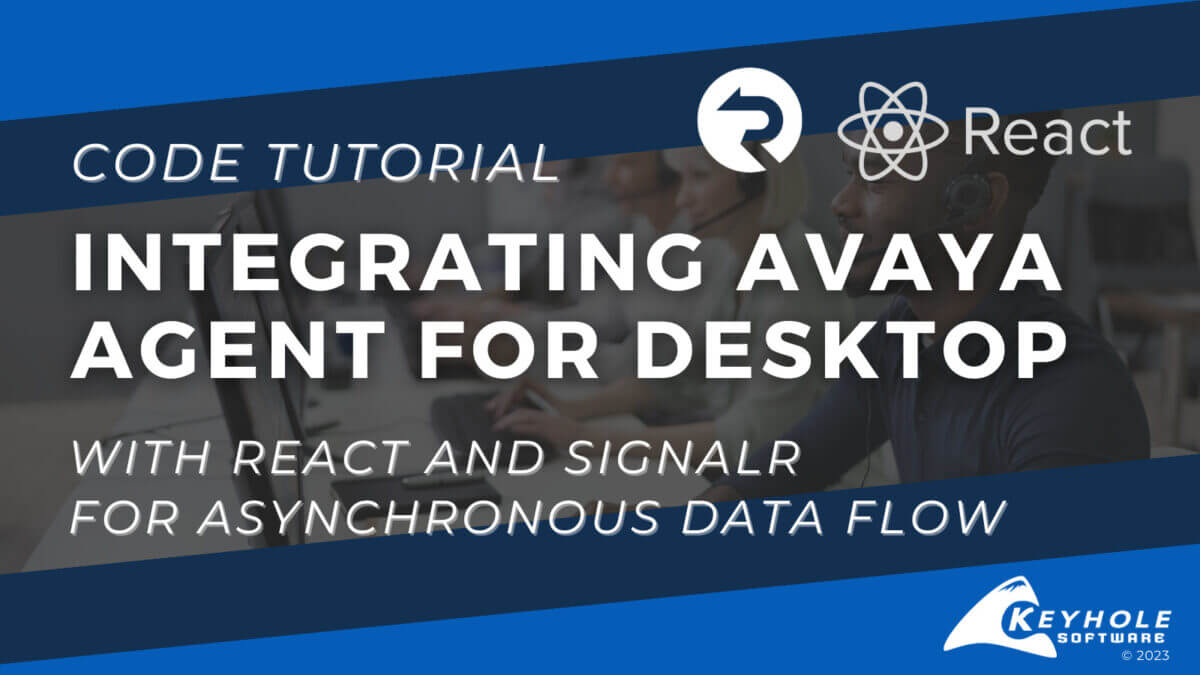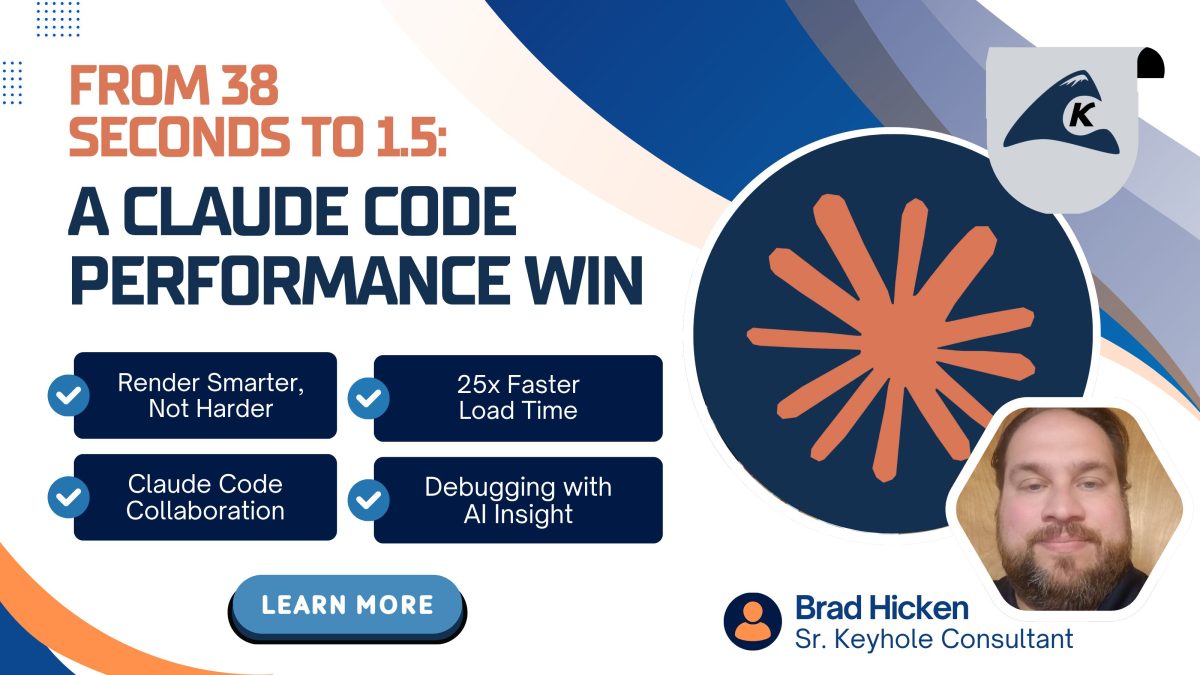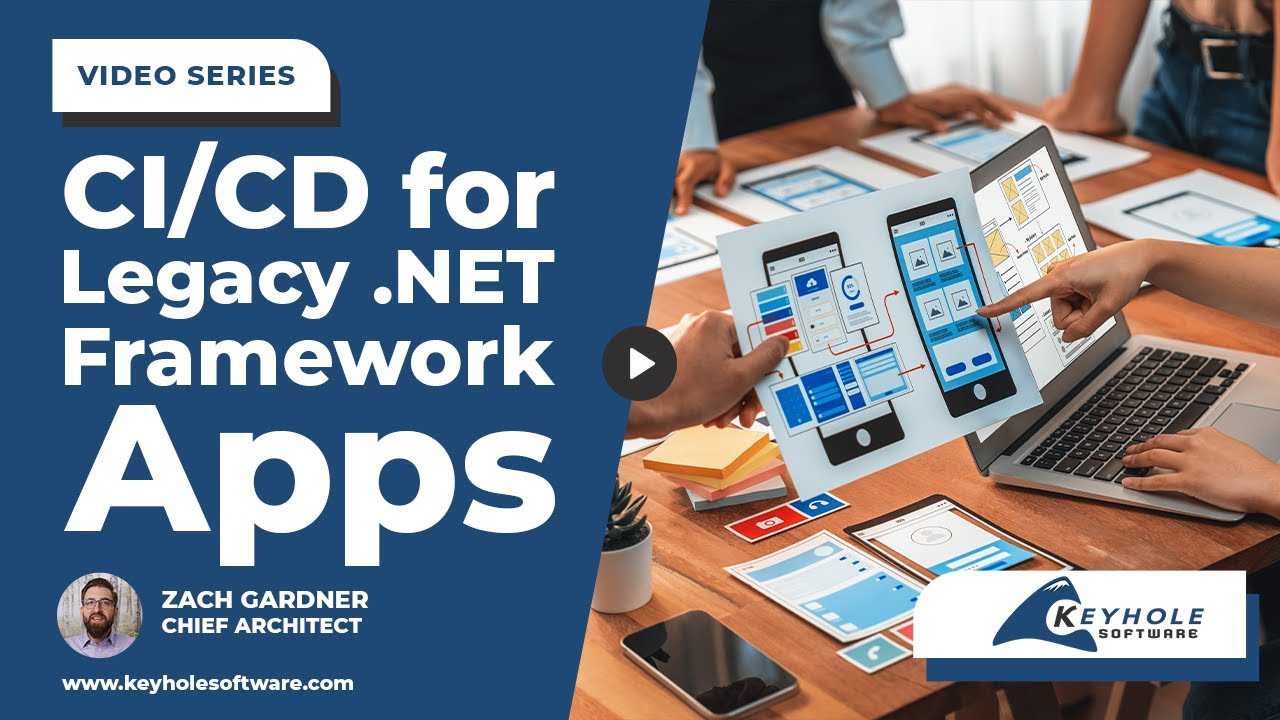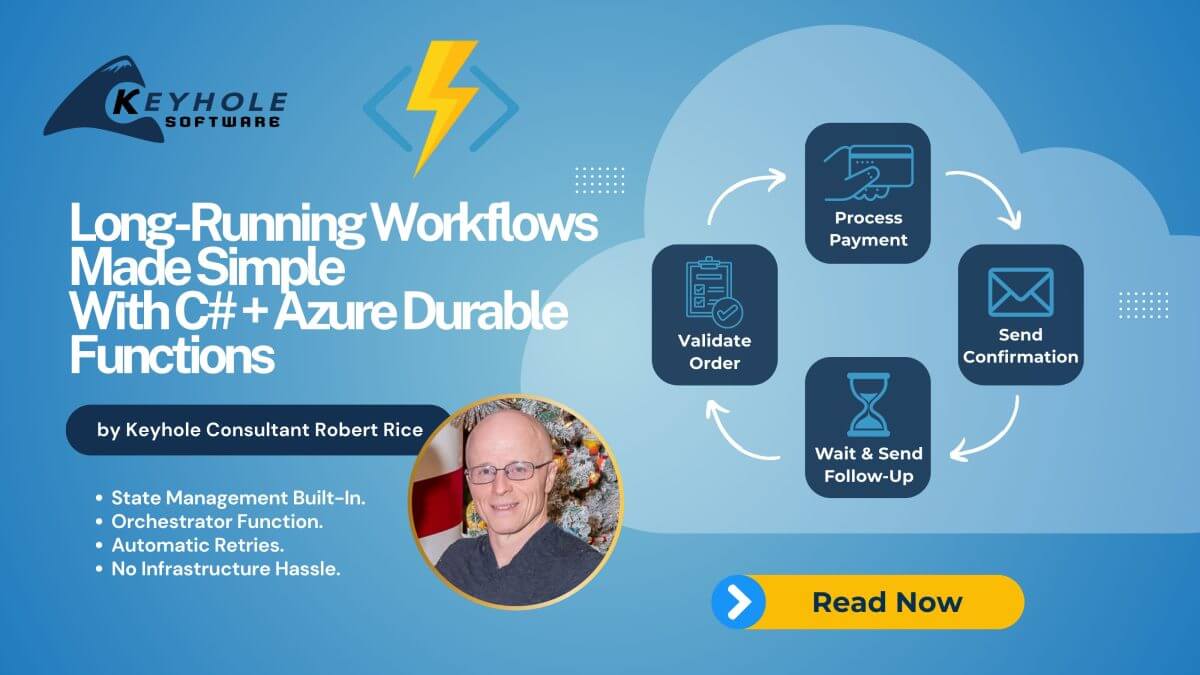
Code Tutorial: Integrating Avaya Agent For Desktop With React And SignalR
January 4, 2023
The Keyhole Software Team is proud to announce a new full-length Code Tutorial:
Integrating Avaya Agent for Desktop with React and SignalR
Keyhole Software gives readers an in-depth code walkthrough and tutorial for how to integrate Avaya Agent for Desktop using React and SignalR.
No registration is required.
Download PDF Send To EmailCode Tutorial Outline
The tutorial is broken down into four key steps. These steps, as well as their substeps, are outlined below.
- Avaya Agent for Desktop
- Integration Engine API
- Setting up the Azure Container Registry and Azure Web App via Terraform
- Pushing the Docker image to the Azure Container Registry via GitHub Actions
- Creation of the Azure Web App
- Azure SignalR Service
- Application API and SignalR Hub
- Creation of the UI with MSAL
- Incorporating MSAL into the Application API
- Adding SignalR Hub to the Application API
- Integration of Integration Engine with SignalR Hub
Abstract
This integration allows the web-based application to asynchronously receive information about an inbound call, which enriches agents’ experiences and protects against context switching and double documenting. As for technology, AAfD (Avaya Agent for Desktop) is used as the softphone, React as the library to compose the SPA (Single Page Application), and SignalR as the bi-directional message hub.
The hypothetical scenario in this tutorial can be extended to many other use cases where there needs to be coordination between disparate systems, with an end user’s web browser being informed of the traffic without needing to do any long polling or other methodologies.
Asynchronous data flow is useful to many different business verticles, and SignalR is a powerful tool that will likely become a larger part of the custom Application Development enterprise ecosystem in years to come.
Send Code Tutorial To Email
View Other White Papers
See other Keyhole Software White Papers here:
Keyhole Software White PapersMore From Keyhole Software
About Keyhole Software
Expert team of software developer consultants solving complex software challenges for U.S. clients.



